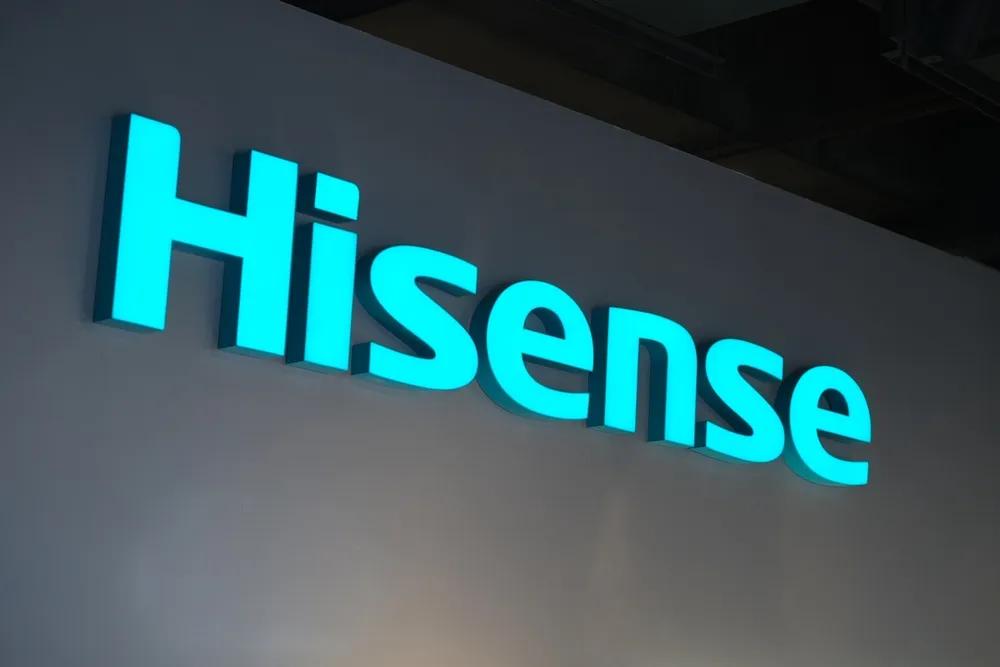Thousands of consumers who purchased Hisense 4k Android smart TVs since 2019 may have unknowingly brought home televisions with defective parts.
A newly filed class action lawsuit in Georgia alleges these TVs suffer from severe performance problems, leaving owners frustrated and seeking answers.
The allegations target a wide range of Hisense 4K Google OS Smart TVs.
At the heart of the legal battle lies the claim that Hisense failed to disclose critical defects in the TVs' main boards - essential components that control everything from basic power functions to app performance.
Matthew Deyell's Defective Hisense TV
Leading the charge against Hisense Corp is Matthew Deyell, a disgruntled customer who purchased a Hisense H8G Series TV in October 2020.
Like many consumers drawn to the sleek design and attractive price point of Hisense's Android smart TVs, Deyell expected a high-quality viewing experience.
Instead, he soon found himself grappling with a host of performance problems.
Deyell claims his TV began exhibiting signs of trouble just a few months after purchase, with frequent lagging, freezing, and crashes, ruining his viewing experience.
Attempts to resolve these issues through Hisense's customer support proved fruitless, leaving Deyell frustrated and seeking legal recourse.
Is Your Hisense Smart TV on the List?
This class action suit covers a wide range of Hisense Android smart TV models sold in the United States from 2019 onward, including:
- H8, F, and G series (2019-present)
- H9, F, and G series
- H65 series
- U6 series (including U6H and U6K models)
- U8 series (including U8N model)
- A6 series
If you own one of these smart TV models, you may be entitled to remedies if the lawsuit is successful.
Lead attorneys encourage affected consumers to monitor the case's progress and consider joining the class plaintiffs.
Understanding the Defective Main Board Allegation
According to the complaint, Hisense smart TVs suffer from a faulty main board - the central component responsible for processing signals and enabling core functions.
The main board defect allegedly causes several performance issues, including:
- Slow or unresponsive inputs.
- Image sluggishness
- Inability to download or launch apps.
- Failure to reset to factory settings.
- TV refusing to turn on.
Most concerning, the suit argues that these problems often manifest shortly after Hisense's one-year warranty period expires.
This nuisance reportedly burdens consumers with costly repair bills or forces them to purchase a replacement TV prematurely.

Lawsuit Claims Hisense Knew About Smart TV Defect
Perhaps the most damning allegation in the complaint is that Hisense was likely well aware (or should have been aware) of the main board defect but continued to sell the affected models without warning consumers.
The suit points to several red flags that should have alerted Hisense to the issue, including:
- The company's product testing and validation reports during the manufacturing process.
- A flood of customer complaints posted on Hisense and retailer websites detailing main board failures.
- Repair requests and failure data from Hisense's authorized service centers.
Despite these warning signs, Deyell contends Hisense kept quiet about the problem and continued profiting from defective TV sales.
Hisense Accused of Warranty Violations and Unjust Enrichment
The Hisense class action lawsuit leverages a range of legal claims to pursue justice for affected consumers.
These arguments include:
- Violations of the Magnuson-Moss Warranty Act, which regulates consumer product warranties.
- Breach of express warranties made by Hisense about the quality and performance of its TVs.
- Breach of implied warranty of merchantability, meaning the TVs were not fit for their intended purpose.
- Unjust enrichment, arguing Hisense unfairly profited from selling defective products.
- Violations of New York's strong consumer protection laws.
By pursuing claims under product liability and warranty law, lead attorneys have built a comprehensive case against Hisense that could result in significant financial penalties and mandatory corrective action.
Potential Fallout for Hisense and Consumers
For Hisense smart TV owners covered by the lawsuit, the main board defect represents more than just a frustrating viewing experience.
The suit highlights the financial burden placed on consumers forced to pay out of pocket for repairs or replacement TVs.
It also raises alarming safety concerns, as TVs with outdated, unpatched software are increasingly vulnerable to hacking and malware.
There's an environmental issue to consider, as well.
TVs that fail prematurely due to manufacturer defects often end up in landfills, contributing to the mounting problem of e-waste.
This consequence could hurt Hisense's brand reputation in an era where consumers are increasingly eco-conscious.
What the Hisense Class Action Lawsuit Hopes to Achieve
At its core, the class action against Hisense is about holding the company accountable and securing relief for affected consumers.
The suit seeks a range of remedies, including:
- Compensation for consumers who incurred out-of-pocket repair costs or had to purchase a replacement TV.
- A court order compelling Hisense to issue a recall and replace defective main boards free of charge.
- Requiring Hisense to extend its warranty coverage to account for the known defect.
- Mandating clear disclosure of the potential for main board failures to future buyers.
While litigation may be an uphill battle against a large corporation, the lawsuit attempts to level the playing field and ensure the company treats its consumers fairly.
Final Takeaway for Owners of Hisense TVs
As the class action winds through the legal system, Hisense smart TV owners would be wise to stay tuned for updates.
If you own an affected model, you may be entitled to relief if the lawsuit succeeds.
In the meantime, document issues and any related expenses if you're experiencing problems with your Hisense TV.
Also, hold onto your repair bills, correspondence with Hisense support, and other relevant records. But, most importantly, don't suffer in silence.
Consumers who band together, speak out, and advocate for their rights can hold manufacturers accountable for selling defective products, provoking positive change in the electronics industry and beyond.




Add Comment